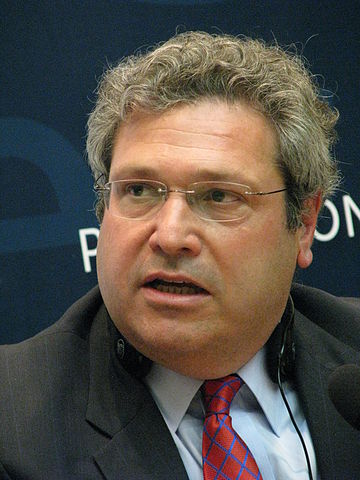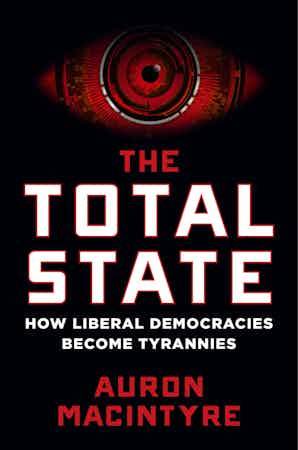The Film Detective
Published Nov 15, 2018During the height of the Great Depression, a scavenger hunt party game brings a pair of spoiled sisters, Irene and Cornelia Bullock (Carole Lombard and Gail Patrick) to a city dump looking for a “forgotten man”. They find down-and-out hobo Godfrey Parks (William Powell), who accompanies one of the sisters back to the party to be presented as a scavenger hunt find, and ends up warily accepting her offer to become the family butler. Irene falls for Godfrey, but is unaware of his mysterious past. Nominated for six Academy Awards, My Man Godfrey might be the screwiest of all screwball comedies.
Director: Gregory La Cava
Writers: Morrie Ryskind, Eric Hatch
Starring: William Powell, Carole Lombard, Alice Brady, Gail Patrick, Eugene Pallette, Jean Dixon
September 15, 2024
My Man Godfrey (1936) with William Powell and Carole Lombard
September 14, 2024
QotD: Academia
… the ivory tower — that is to say, an institution where all the drama is entirely self-manufactured by vain, petty people who think they’re much smarter than they actually are. That rules out most genres people actually enjoy reading right there. There’s comedy, I guess, and I considered giving that a go, but the modern university is beyond parody. Maybe Joseph Heller at his absolute apex could pull it off, but I’m no Joseph Heller. Nor am I Franz Kafka, who is the onlie begetter of the only other genre that would cover academia: Surrealist, absurdist, dystopian horror. The adjective “Kafkaesque” describes graduate school perfectly, no doubt, but if you somehow need a dose of that, just go read The Trial. Or watch the film Brazil, and imagine everyone is twice as polysyllabically self-important …
Severian, “Storytelling Fail”, Rotten Chestnuts, 2021-07-13.
September 13, 2024
“The problem [with America] is and has always been the people and their beliefs”
Chris Bray puts on the old biohazard suit and goes wading into the political book section, this time looking at two recent tomes by NeverTrumpers Robert Kagan and Tom Nichols:
If you want to know where we are as a country, get your hands on a copy of Robert Kagan’s new book, Rebellion. Don’t worry, you won’t even need to crack the spine and open it. Kagan, who married the Queen of Eternal War Victoria Nuland and helped found the now defunct neoconservative Project for a New American Century, has written a warning about the dangerous renascence of antiliberalism in American political life: intolerance, a rejection of minority rights, hatred of progress. America is in deep trouble, Kagan warns. We’re close to losing our democracy! You can already see the freshness and originality of his thought.
Flip it. Take the book, turn it around, and look at that back cover, which carries an excerpt from inside, getting right to the meat of the thing. The problem isn’t the media, Kagan concludes. And it isn’t government. It isn’t a problem with institutions at all: “The problem is and has always been the people and their beliefs”. The thing that’s wrong with America is Americans, full stop. The country works brilliantly, except for the existence of the population. Imagine how healthy we would become if we could just get rid of them.
Should you make the mistake of opening the book, your experience will get worse in a hurry. The intellectual muddle is fatal. Here’s Kagan’s summary of the one big problem that runs through all of American history: “A straight line runs from the slaveholding South in the early to mid-nineteenth century to the post-Reconstruction South of the late nineteenth and early twentieth centuries, to the second Ku Klux Klan of the 1920s, to the Dixiecrats of the 1940s and 1950s, to Joseph McCarthy and the John Birch Society of the 1950s and 60s, to the burgeoning Christian nationalist movement of recent decades, to the New Right of the Reagan Era, to the Republican Party of today.”
All of those movements are precisely the same, you see. Ronald Reagan was a latter-day Ben Tillman, the Birchers merely a rebrand for the 1940s Southern Democrats, and Barry Goldwater was a fitting heir to Nathan Bedford Forrest. A shrewd mind is at work here. All, Kagan concludes, were figures representing “antiliberal groups”: “All have sought to ‘make America great again,’ by defending and restoring the old hierarchies and traditions that predated the Revolution.” The American Revolution, he means. The Dixiecrats and the Birchers and Reagan and Trump all want to restore Parliamentary supremacy and the landed aristocracy, or … something.
But pretend, for a moment, that Kagan has made some form of coherent statement about American history. He is arguing for the protection of the liberal order, the dignity of the common man and the premise that we’re all created equal. At the same time, he says, the biggest problem with America is … the American people themselves. How do those two claims fit together? What kind of politics can we frame around the dignity and inherent worth of the common man, who is stupid and worthless?
See also, on this theme, anything the former U.S. Naval War College professor Tom Nichols has written in the last decade, such as his warning in Our Own Worst Enemy: The Assault from Within on Modern Democracy that “our fellow citizens are an intolerable threat to our own safety” — a claim that closely mirrors Kagan’s warning about America being plagued by Americans. Consider this framing very carefully: if a threat is intolerable, what do you have to do about it?
Kagan’s base argument sounded better in the original German.
September 11, 2024
The Korean War Week 012 – Green Light for Incheon – September 10, 1950
The Korean War by Indy Neidell
Published 10 Sep 2024Douglas MacArthur’s brazen plan to land two full divisions far behind enemy lines and sabotage the North Korean logistics finally gets the green light from the President and the Joint Chiefs of Staff, despite the myriad difficulties everyone knows the operation will face. It is to go off next week. In the field, the North Korean offensive against the Naktong Bulge continues, though it seems to be running out of steam, and the UN forces get beefed up as the first British troops to arrive in Korea join the battle line.
Chapters
01:03 Recap
01:23 KPA Offensive and Counterattacks
07:31 JCS Approve Incheon
10:33 Eugene Clark Investigates
13:32 More UN Forces for the fight
15:00 Summary
15:24 Conclusion
18:14 Call to Action
(more…)
September 10, 2024
Why the US Left Vietnam
Real Time History
Published Apr 19, 2024With violent anti-war protests at home and discipline problems on US bases, President Nixon promises to withdraw American troops from the Vietnam War, but that doesn’t mean an end to the fighting. As US troop numbers drop, the war expands across borders and in the air as more weapons are pumped into the South.
(more…)
QotD: Contempt of court
It’s a funny thing — or not — but due to the sad state of prison security in this country, a judge can essentially threaten a person with rape and severe beatings. How about that? One more reason to live clean and avoid making waves.
Steve H., “Was I Wrong About Cooper? Don’t Think So”, Hog On Ice, 2005-07-06.
September 9, 2024
Update your Overton Window – “[A]nyone to the immediate right of 2024 liberal democracy is a fascist”
In Niccolo Soldo’s weekly commentary, a few insights into European “mainstream” political views on extreme right-wing crypto-fascists like … everyone who doesn’t support far left positions:
If you think that US media is bad, you should check out just how awful their German colleagues are. Their media is filled to the brim with daily hysteria about the Russians, Nazis, fascists, and so on. Every single day is a struggle to survive against these existential threats.
To the mainstream German media, a conservative Christian Democrat (the kind that ruled much of Western Europe during the Cold War) like Viktor Orban is a fascist in disguise. To the mainstream German media, a statist centrist like Vladimir Putin is Hitler without the disguise. A 90s Clinton Liberal like Donald Trump is both.
Thankfully, Der Spiegel reached out to writers and researchers who specialize in fascism to tell us that all of the above are fascists, and some are Nazis too:
The reversion to fascism is a deep-seated fear of modern democratic societies. Yet while it long seemed rather unlikely and unimaginable, it has now begun to look like a serious threat. Vladimir Putin’s imperial ambitions in Russia. Narendra Modi’s Hindu nationalism in India. The election victory of Giorgia Meloni in Italy. Marine Le Pen’s strategy of normalizing right-wing extremism in France. Javier Milei’s victory in Argentina. Viktor Orbán’s autocratic domination of Hungary. The comebacks of the far-right FPÖ party in Austria and of Geert Wilders in the Netherlands. Germany’s AfD. Nayib Bukele’s autocratic regime in El Salvador, which is largely under the radar despite being astoundingly single-minded, even using the threat of armed violence to push laws through parliament. Then there is the possibility of a second Trump administration, with fears that he could go even farther in a second term than he did during his first. And the attacks on migrant hostels in Britain. The neo-Nazi demonstration in Bautzen. The pandemic. The war in Ukraine. The inflation.
Meloni, Modi, Milei, Wilders, Bukele … all are suspected of crypto-fascism here.
Trump? “Fascist”, says neo-conservative Robert Kagan:
In May 2016, Donald Trump emerged as the last Republican standing following the primaries, and the world was still a bit perplexed and rather concerned when the historian Robert Kagan published an article in the Washington Post under the headline “This is how fascism comes to America.”
The piece was one of the first in the U.S. to articulate concerns that Trump is a fascist. It received significant attention around the world and DER SPIEGEL published the article as well. It was an attention-grabbing moment: What if Kagan is right? Indeed, it isn’t inaccurate to say that Kagan reignited the fascism debate with his essay. Interestingly, it was the same Robert Kagan who had spent years as an influential member of the Republican Party and was seen as one of the thought leaders for the neocons during the administration of George W. Bush.
The article has aged well. Its characterization of Trump as a “strongman”. Its description of his deft use of fear, hatred and anger. “This is how fascism comes to America, not with jackboots and salutes,” Kagan wrote, “but with a television huckster, a phony billionaire, a textbook egomaniac ‘tapping into’ popular resentments and insecurities, and with an entire national political party – out of ambition or blind party loyalty, or simply out of fear – falling into line behind him.”
Jason Stanley, the Jacob Urowsky Professor of Philosophy at Yale University, says that fascism has already come to America:
Six years ago, Stanley published a book in the U.S. called How Fascism Works: The Politics of Us and Them. The German translation only appeared two months ago, a source of annoyance for Stanley. He also has German citizenship and says that he loves the country despite everything.
So how does fascism work? Modern-day fascism, Stanley writes, is a cult of the leader in which that leader promises rebirth to a disgraced country. Disgraced because immigrants, leftists, liberals, minorities, homosexuals and women have taken over the media, the schools and cultural institutions. Fascist regimes, Stanley argues, begin as social and political movements and parties – and they tend to be elected rather than overthrowing existing governments.
Timothy Snyder says that both Trump AND Putin are fascists:
Timothy Snyder speaks thoughtfully and quietly, but with plenty of confidence. Putin is a fascist. Trump is a fascist. The difference: One holds power. The other does not. Not yet.
“The problem with fascism,” Snyder says, “is that it’s not a presence in the way we want it to be. We want political doctrines to have clear definitions. We don’t want them to be paradoxical or dialectical.” Still, he says, fascism is an important category when it comes to understanding both history and the present, because it makes differences visible.
Austrian Political Scientist Natascha Strobl says that fascists are now everywhere:
But this kind of violence can be seen everywhere, says the Austrian political scientist Natascha Strobl. It merely manifests itself differently than it did in the 1920s, when, early on in the fascist movement in northern Italy, gangs of thugs were going from village to village attacking farmer organizations and the offices of the socialist party, killing people and burning homes to the ground. Today, says Strobl, violence is primarily limited to the internet. “And it is,” says Strobl, “just as real. The people who perpetrate it believe they are involved in a global culture war, a struggle that knows no boundaries. An ideological civil war against all kinds of chimeras, such as ‘cultural Marxism’ or the ‘Great Replacement’.”
For Bulgarian think-tanker Ivan Krastev, AfD is a fascist organization:
It is all rather perplexing. Back in Berlin, Ivan Krastev makes one of his Krastevian jokes. An American judge, he relates, once said that he may not be able to define pornography, “but I know it when I see it”. The reverse is true with fascism, says Krastev: It is simple to define, but difficult to recognize when you see it.
The “F-word”. F as in fascism or F as in “Fuck you”. It is permissible, as a court in Meiningen ruled, to refer to Höcke as a fascist. The question remains, though, what doing so actually achieves.
So there you have it: anyone to the immediate right of 2024 liberal democracy is a fascist.
QotD: Clothing
I dress casually in the summer, because it’s hot. But for the last few years I’ve returned to good slacks and decent shoes and a crisp shirt and a tie. Grown-up clothes. Dad clothes. A man ought to be able to put on a shirt and tie without thinking he’s putting on a costume to deal with The Man; he should regard it as the Rainments of Masculinity, the costume we wear to project the impression of seriousness. If we’re not serious, it’ll be apparent quite soon. Likewise if we’re a peacock, a grifter, a poseur, a drone, a cog — the uniform only says that you’re part of the hard plain world, not whether or not you really belong there. I just know that I feel different in a shirt and tie. I stand up straighter. I don’t feel as though I’m owed more respect; on the contrary, I feel obliged to be more respectful. It’s hard to describe, but to paraphrase a drunken Marge Simpson after six Long Island Iced Teas — you guys in the audience, you know what I’m talking about.
James Lileks, Screedblog, 2005-07-25.
September 7, 2024
A Nation Divided, Part One
The Korean War by Indy Neidell
Published 6 Sep 2024Join us as we unfold the post-WW2 history of Korea that resulted in political escalation and eventually a military conflict in 1950. Stay tuned for the remaining parts of this mini-series!
(more…)
S&W M1917: A US Army revolver in .45 ACP
Forgotten Weapons
Published Jun 3, 2024When the United States entered World War One, it had a significant shortfall in military handguns. The M1911 pistol production was expanded as much as possible, but more guns were needed. Both Colt and Smith & Wesson adapted revolver designs to Army standard .45 ACP ammunition, and both were accepted into service as the M1917, despite being different guns with no interchangeable parts.
The most interesting mechanical element of the M1917 is the development of half-moon clips to allow easy extraction of the rimless .45 cartridge. The clips were designed by S&W, but also licensed to Colt for use in their M1917 revolvers as well.
The S&W M1917 began as Smith & Wesson’s Triple Lock design, which was simplified a bit (by removing the cylinder crane lock and the barrel lug) and rechambered for .455 Webley to sell to British and Canadian forces before the US entered the war. About 75,000 were sold like this, and it was then rechamberewd again for .45 ACP for US military sales. The first US deliveries were made in October 1917, and about 163,000 were produced by the time production ended in 1919. Only about half of them actually got to the front lines by the end of the war, and many of the guns went into storage. They were actually brought back out and used in significant use in World War Two as well.
(more…)
September 6, 2024
Climate catastrophism in a phrase – “The sky gods are angry and we’re all gonna pay”
Relax, weather-panic true believers — this is a post from Jim Treacher who gets paid to write funny stuff. This means you can mock everything in it as “fake news”:
I’m pretty old at this point, and for my whole life, the media has been predicting the weather will kill us all.
When I was a kid, the news was all about the coming Ice Age.
Brrrrr! Iran was a bunch of terrorist assholes even back in the ’70s, but the existential threat to America hadn’t been updated yet. They thought the cold was gonna get us.
And that dumb magazine was only $1.25 an issue! Everything might be more expensive 45 years later, but at least we haven’t all frozen to death.
Then the big threat became “global warming”. But when people noticed it wasn’t getting any warmer outside, despite the climate models that were supposed to horrify us, the scare tactic became “climate change”. They didn’t think we’d notice, I guess.
And through it all, there was one constant refrain: The sky gods are angry and we’re all gonna pay.
Do you leave your phone charger plugged in when you’re not using it? Do you drive a gas-powered car because it actually works? Then you’re destroying the planet, according to a pack of millionaires with yachts and private jets.
But now the celebrities and other climate supplicants are in dismay. The weather is letting them down again! Yet another of their predictions hasn’t come true, and they want to know why their climate deities have abandoned them.
Halfway through an Atlantic hurricane season that forecasters expected would be one of the most active on record, there has been a considerable interlude in storms during what is typically the busiest portion of the season, leaving observers to wonder if the forecast was a bust — or if the worst may be yet to come.
Often, at this time of the year, it isn’t uncommon to see two, three or even four named storms occurring simultaneously. But on Wednesday there were no current storms, and there hasn’t been one since Hurricane Ernesto formed, beginning as a tropical storm, on Aug. 12 …
Despite the reprieve in recent weeks, though, “it is too early to dismiss the seasonal hurricane outlook as a bust,” said Dan Harnos, a meteorologist at the NOAA Climate Prediction Center.
You got that? We haven’t endured as many deadly, destructive hurricanes as the scientists predicted. And they’re worried about it. They want people to suffer and die, but they’re hopeful that nature will still unleash its fury on us.
There’s still time for the worst to happen. Fingers crossed!
September 5, 2024
Is the DEI tide finally receding from corporate boardrooms?
At the Foundation for Economic Education, Jon Miltimore explains why many major US corporations are reconsidering their earlier “all in” approach to lecturing their customers about progressive causes:

Bud Light’s brand ambassador, Dylan Mulvaney, whose antics triggered a consumer boycott that cost the company over a billion in lost revenue.
DEI is just one form of corporate social activism, which comes in various forms and includes its cousin Environmental, Social, and Governance (ESG). Both ideas fall under, to some degree, Corporate Social Responsibility (CSR), the idea that corporations have a duty to take social and environmental actions into consideration in their business models.
If you’re wondering why Burger King has commercials on climate change and cow farts, and why Bud Light’s commercials went from featuring Rodney Dangerfield and Bob Uecker to trans activist Dylan Mulvaney, it’s because of CSR.
The idea that corporations should fight for social causes has skyrocketed in recent years to such an extent that activism is inhibiting companies in their primary mission: generating profits by serving customers.
“Firms leveraging situations and social issues is not new, but showcasing their moral authority despite a disinterested consumer base is,” Kimberlee Josephson, an Associate Professor of Business at Lebanon Valley College in Annville, Pennsylvania, has observed.
Bud Light’s decision to feature Mulvaney cost them an estimated $1.4 billion in sales, and it revealed the danger of corporations leaning into social activism, particularly campaigns and policies that alienate their own consumer bases.
Not very long ago, companies like Chick-fil-A faced backlash from progressive activists for supporting traditional marriage. Culture war advocates on the right have responded in similar fashion.
Conservative influencers have made a point of raising awareness around “woke” corporate initiatives — white privilege campaigns, climate change goals, LGBTQ events, etc. The most successful ones, such as Robby Starbuck who pioneered the campaign against Tractor Supply and John Deere, made a point of targeting corporations with conservative consumer bases.
“If I started a boycott against Starbucks right now, I know that it wouldn’t get anywhere near the same result,” Starbuck recently told the Wall Street Journal.
One can support Robby Starbuck’s tactics or oppose them. What’s clear is that corporations increasingly face risks for participating in social activism campaigns, and the threats now come from both sides of the political aisle.
Respectful neutrality on cultural issues used to be the default way for companies to avoid insulting the general public and potentially alienating customers. Under the influence of DEI/ESG/CSR advocates, corporations were persuaded that they could offend half of the population without suffering any meaningful financial losses. That turned out to be untrue.
September 4, 2024
The Korean War Week 011 – Destroy the Perimeter! – September 3, 1950
The Korean War by Indy Neidell
Published 3 Sep 2024The North Korean forces launch a huge new offensive against the entire Pusan Perimeter, hoping to break through at least somewhere along the line. They are aware that time is of the essence, for the UN forces grow in number daily, while they are losing a battle of attrition. Some new UN arrivals this week are the first British ground troops in Korea for the fight. Meanwhile, Douglas MacArthur’s plans for his upcoming surprise counteroffensive hit all sorts of snags thanks to Korean geography.
Chapters
00:51 Recap
01:26 The British Arrive
03:47 New KPA Strategy
06:49 The New KPA Offensive
12:26 More Incheon Issues
15:16 The US and China
17:12 Summary
(more…)










